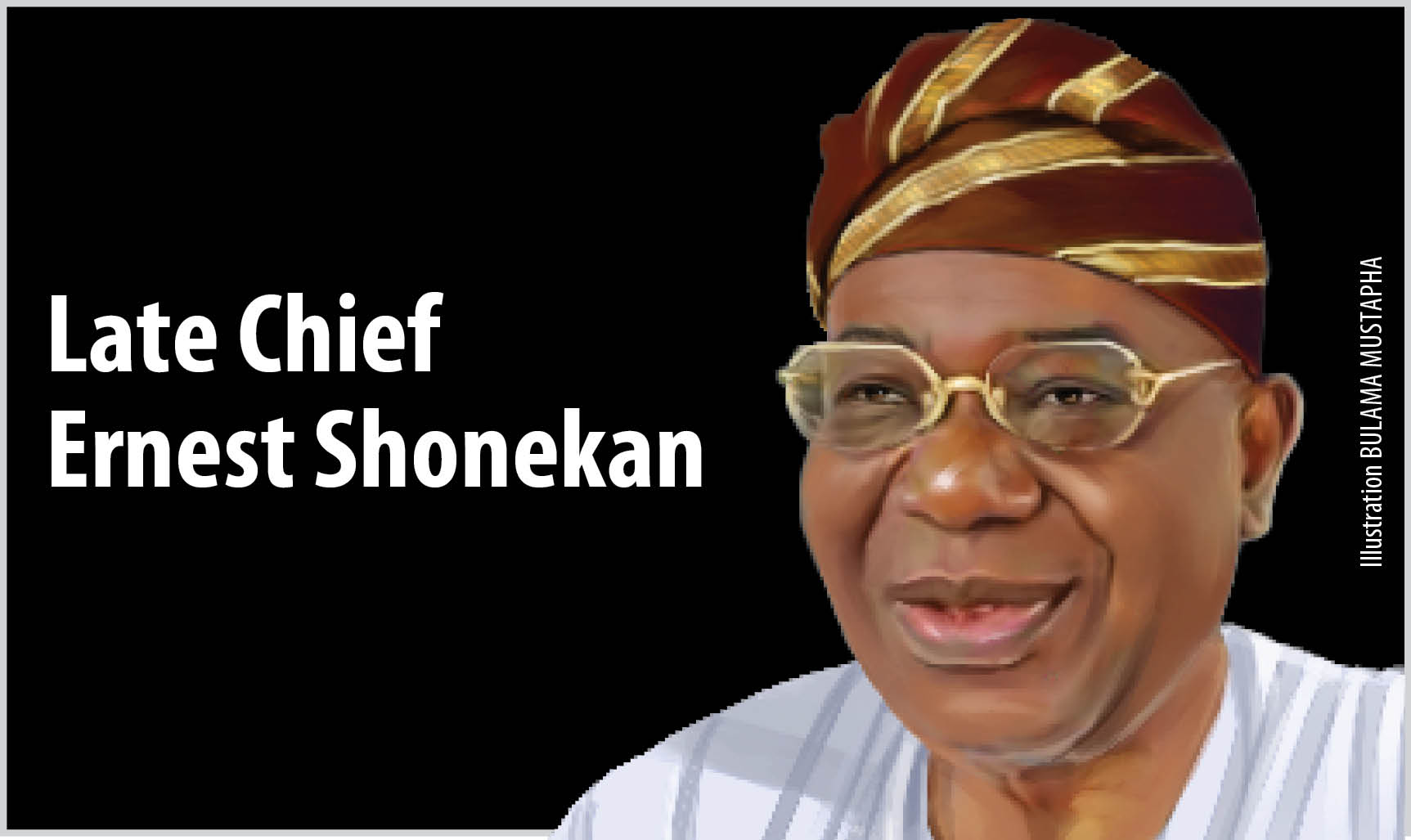Chief Ernest Adegunle Shonekan (1936-2022)
Last Tuesday morning, the family of Chief Ernest Adegunle Shonekan announced his death. He was aged 85. Chief Shonekan was appointed by then military president, General Ibrahim Babangida, as Chairman of the National Interim Government (NIG) and Head of State of Nigeria from August 26, 1993 following the crisis arising from the annulment of the […]

Late Chief Ernest Shonekan
Last Tuesday morning, the family of Chief Ernest Adegunle Shonekan announced his death. He was aged 85. Chief Shonekan was appointed by then military president, General Ibrahim Babangida, as Chairman of the National Interim Government (NIG) and Head of State of Nigeria from August 26, 1993 following the crisis arising from the annulment of the June 12, 1993 presidential election.
Thus, Shonekan became the only Nigerian leader that ascended the country’s leadership neither through election nor coup d’état.
His personal and professional achievements, as well as his background as an indigene of Abeokuta, Ogun State, the same community with the late Chief M. K. O. Abiola, the acclaimed winner of the 1993 presidential election annulled by General Babangida, buoyed his appointment, specifically to steer Nigeria out of a looming bloody conflict during an aborted transition to democracy.
Abiola had declared himself winner of the election, triggering further widespread unrest with tensions in the South West region and fears of civil war. There were strikes and protests by labour unions and civil society organisations, and also by political groups especially the National Democratic Coalition (NADECO).
Despite all these, Chief Shonekan forged ahead, meeting with different segments of the Nigerian population, trying to clear the political mess left by the military.
Ultimately, Shonekan was unable to exert the authority needed to present a democratic transition plan. Then, General Sani Abacha, who had all along loomed large over the interim government as then Minister of Defence and de facto Commander-in-Chief of the Armed Forces, removed Shonekan from power on November 17, 1993, just after 83 days in office. This made Ernest Shonekan the Nigerian leader who has spent the shortest time in office so far.
Although his parents were from Abeokuta, Ogun State, Shonekan lived his early life in Lagos, where he was born on May 9, 1936 into a family with six children. He had his secondary education at the CMS Grammar School, Lagos, before attending University of London where he earned a Bachelor’s degree in Law. Shonekan also attended Harvard Business School.
He began his professional career in 1964 at the United African Company (UAC), one of the largest African controlled groups involved in manufacturing, services, logistics and warehousing, agricultural and real estate. Shonekan moved through the ranks of the company to become the chairman and managing director in 1980.
After his ouster from office, he led other business leaders to found the Nigerian Economic Summit Group (NESG) in 1993 as platform to bring together senior private and public sector leaders to discuss and dialogue on the future of the Nigerian economy. Thus, until his elevation to the country’s highest political office as Chairman of the Interim National Government (ING), Chief Ernest Shonekan was one of very few Nigerians of his generation whose careers were built almost entirely in the private sector.
Mourning him, President Muhammadu Buhari described Shonekan as an internationally-respected statesman of courage and wisdom, who became “the Head of Government at a delicate time when the country needed someone of his calm mien and pedigree to save the ship of state from sinking.” We cannot not agree more.
But what stood Chief Shonekan out was his patriotism. He put the national interest well above his personal and group interest by resisting pressure from his fellow Yoruba to reject the ING appointment. Nigerians may recall that his fellow Egba kinsmen led by four traditional rulers and top retired military officers of Egba extraction had openly pressured Shonekan not to accept a position of which another Egba had just been robbed, thereby legitimizing the annulled election.
The late Head of State, however, saw beyond all that and accepted to lead a nation at one of its darkest moments. By accepting the ING position, he showed that he was a patriot who meant well for the entire country. Indeed, the story of Nigeria as one indivisible nation will be told by the courage and sacrifice of only a handful of Nigerians who stepped up where none dared. Chief Shonekan was one of such Nigerians, and for that alone, present and future generations of Nigerians owe a debt of gratitude that only his Creator can repay.
After his ouster from power, Shonekan carried himself with utmost dignity and avoided the cult of personality beloved by many a Nigerian leader in office or out of it, even as he was ostracized by his immediate community in the South West. He would be remembered as a man who played a stabilizing role at that tumultuous period in the nation’s history, a man who opted for national peace and unity to preserve an endangered nation.
This is the man Nigeria would miss. May his soul rest in perfect peace.
